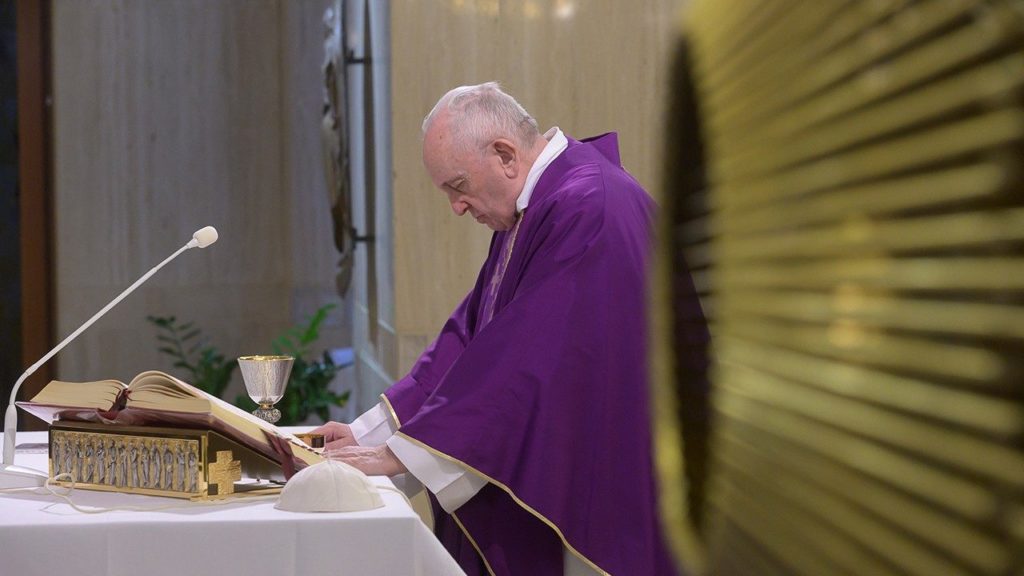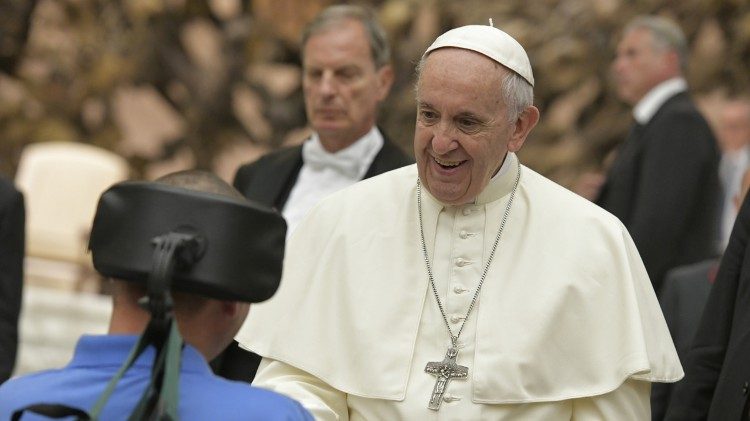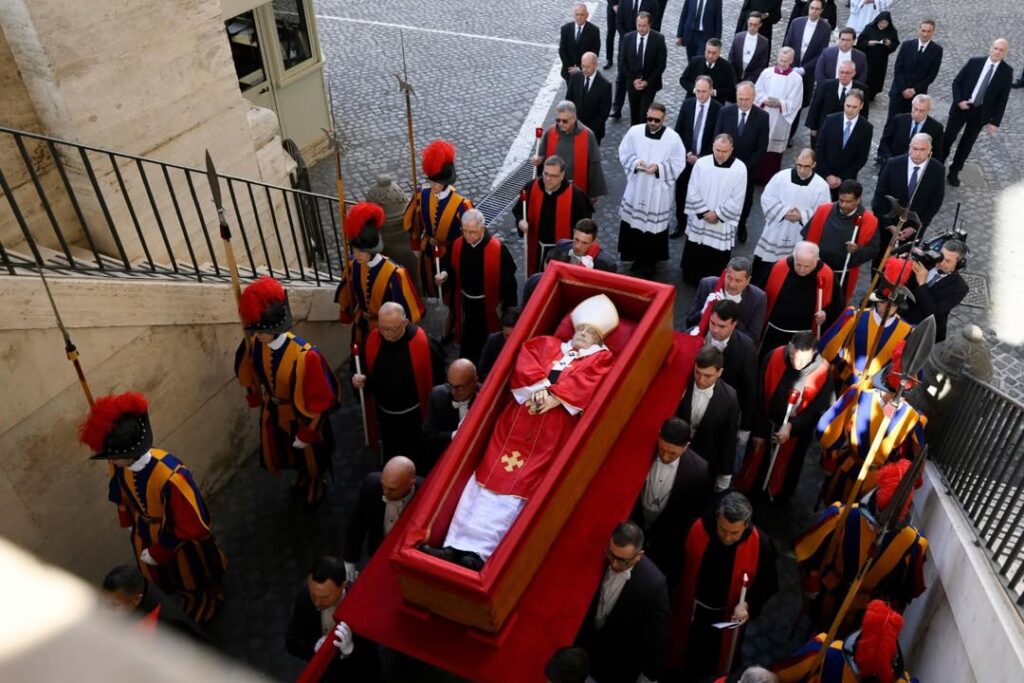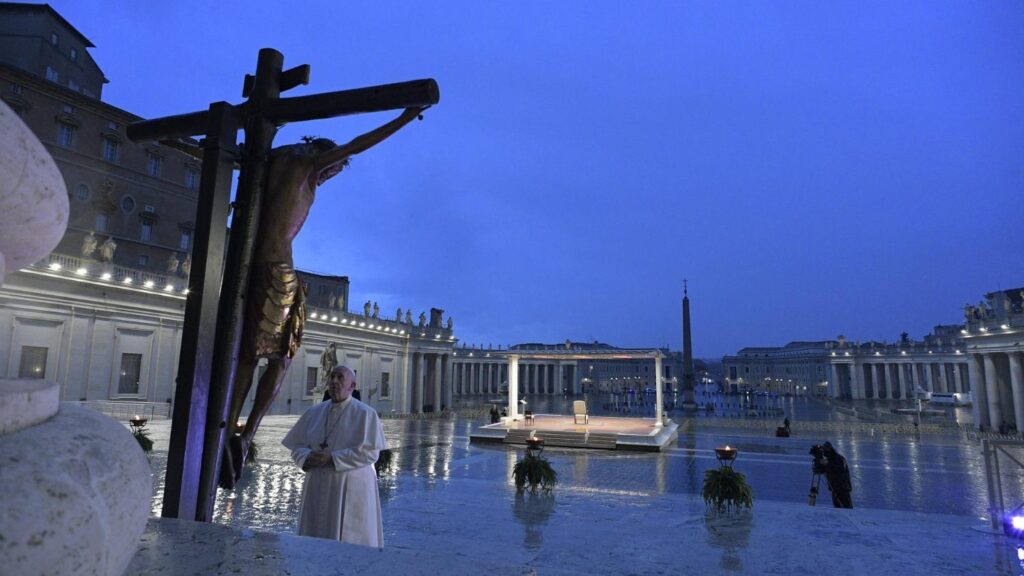Pope Reflects on Tridentine Mass in Interview
The Pontiff Talks on COPE About Corruption, Cardinal Becciu, the Church in Germany, China

In his interview with Spanish journalist Carlos Herrera on the COPE Radio Network, Pope Francis talked about the recent promulgation of the Motu Proprio “Traditionis Custodes,” which limits the celebration of the Tridentine Mass: “the anxiety that emerged most was that something, which was done to help pastorally those that have lived a previous experience, would be transformed into ideology, namely, that something pastoral <would become> ideology.”
The Holy Father said that the “history of Traditionis Custodes is long,” since Saint John Paul II and then Benedict XVI “the possibility was made more clearly with the Motu Proprio “Summorum Pontificum,” that the Mass “could be celebrated with John XXIII’s Missal (prior to that of Paul VI, which is the post-conciliar) for those that didn’t feel happy with the present Liturgy, who had a certain nostalgia . . . “ It seemed to the Pope that it was one of the “most beautiful and human pastoral things of Benedict XVI, who is a man of exquisite humanity. And so it started this way. That was the motive.”
“Three years later, he said that an evaluation had to be done,” which was carried out, “and it seemed that all was going well,” continued the Pope. “Ten years passed “ from that evaluation to now (that is, thirteen since the promulgation) and last year we saw with those responsible for Worship and the Doctrine of the Faith, that it was appropriate to do another evaluation with all the Bishops worldwide. And it was done. It took the whole year.”
What Is Pastoral Must Not Be Transformed Into Ideology
After the study, “the anxiety that emerged most was that something that was done to help pastorally those that have lived a previous experience, would be transformed into ideology, that is, something pastoral would become ideology. “ In face of this, we “had to react with clear norms — clear norms that would put a limitation for those who had not lived that experience. Because it seemed that it was fashionable in some places that some young priests said: ‘Ah, no, I want … and some don’t know Latin; they don’t know what it says. And, on the other hand, were those that wanted to support and consolidate Summorum Pontificum.”
“I did more or less a schema, I had it studied and I worked, I worked a lot with traditionalist people of good sense” and, as a result, “that pastoral care issued, which must be had, with some limitations but good ones. For example, that the proclamation of the Word be in a language that all understand, otherwise, it’s to laugh at the Word of God — little things,” said the Pontiff.
Rome’s Permission
The limitation is very clear. After this Motu Proprio, a priest who wants to celebrate is not in the condition of the others – which was out of nostalgia, out of desire, etc., and here he does have to ask Rome for permission. <It’s> a sort of permission of bi-ritualism which only Rome can give, as a priest that celebrates in the Oriental Rite and the Latin Rite, is bi-ritual with Rome’s permission,” he stressed.
The Bishop of Rome also said that until “today, the previous ones continue but slightly ordered. More than that, it asks that there be a priest who is in charge, not only of the Liturgy but of the spiritual life of that community.” And he added, “of you read the letter well, and read the Decree well, you’ll see that it’s simply to reorder constructively, with pastoral care to avoid excesses for those that are not . . . “
Corruption and the “Becciu Case”
The Holy Father was also asked about the trial in which Cardinal Angelo Becciu is charged and about the reform of finances in the Vatican. On corruption in general, the Hoy Father said that “all means must be used to avoid it, but it’s an old story” (. . . )” It’s a disease that relapses.
The Pope also thinks that there “has been progress today in the consolidation of justice in Vatican State. It was worked on for three years so that justice would be more independent, with technical means, including with recorded statements of witnesses, the present technical things, the appointment of new judges, of the new public ministry, and this took things forward, and it helped. The structure helped to confront this situation, which it seemed would never exist.”
The Pontiff added that it” all began with two complaints of people that work in the Vatican and who saw irregularity in their functions” (. . . ). The thing was somewhat challenging, but they were two good people, they were somewhat cowed and then, to encourage them, I put my signature under theirs, to say: this is the way; I’m not afraid of transparency or of the truth. Sometimes it hurts a lot, but the truth is what makes us free. So this is what it was simply. Now, a few years hence another might appear . . . “
“We hope that the steps we are taking in Vatican justice will help so that these deeds happen less,” he concluded on this subject.
In regard to Cardinal Becciu’s trial, the Pontiff said: ”I very much hope that he is innocent. Moreover, he was one of my collaborators and he helped me a lot. He is someone for whom I have a certain esteem as a person, that is, my desire is that it will turn out well. However, it’s an effective way of the presumption of innocence, there you have it. Moreover, I hope that the presumption of innocence will end well. Now it’s justice that will decide.”
The Church in Germany
In regard to the synodal path that the German Catholic Church has initiated, His Holiness said “I permitted myself to send a letter, a letter that I alone wrote in Spanish. It took me a month to do that, between praying and thinking. And I sent it at the right time: the original in Spanish and the translation in German. And I expressed there all that I feel about the German Synod. It’s all there.”
Afterward, Carlos Herrera pointed out that it’s “not a new protest of the German Synod . . . history is repeated,” to which Pope Francis answered: “Yes, but I wouldn’t not think either that it’s too tragic. There is no bad will in many Bishops with whom I spoke. It’s a pastoral desire, but that here and there it doesn’t take into account some things, which, I explain in the letter, must be taken into account.”
Agreement with China, the Importance of Dialogue
During the interview, Herrera referred to those people that consider that the Agreement the Vatican signed with China shouldn’t be renewed, because it endangers its moral authority.” In face of this, the Successor of Peter said “when I was a layman and priest I also liked to point out the way to the Bishop. It’s a temptation that I would even say is licit if it’s done with goodwill.”
In “regard to China, it’s not easy, but “I’m convinced that dialogue must not be given up. They can deceive you in the dialogue, you can make a mistake, all that is true . . . but it is the way. Closure is never the way. What has been achieved up to now with China is at least to dialogue . . . a few concrete things, such as the appointment of new Bishops, slowly.”
At the same time, Pope Francis acknowledges that the steps can be questionable and the results can be on one side or the other. In this line, he added, that for him “the key figure in all this, which helps me and inspires me is Cardinal Casaroli, the man that John XXIII asked to build bridges with Central Europe,” and little by little he created bridges, “small step after small step.”
Today we must follow in some way these paths of dialogue, small step by small step, in more conflictive situations, “said His Holiness, giving as an example his experience of dialogue with Islam, with the Grand Imam of Ahmed el-Tayeb, “the germ of Fratelli Tutti. But dialogue, dialogue always and willingness to dialogue,” he stressed.
Translation by Virginia M. Forrester
Related

His Hope Does Not Die!
Mario J. Paredes
24 April, 2025
6 min

Francis. The Human and Religious Imprint of a Papacy
Isabel Orellana
24 April, 2025
5 min

A Pope’s Last Journey: Francis’ Body Transferred to St. Peter’s
Exaudi Staff
24 April, 2025
3 min

Cardinal Felipe Arizmendi: With the Risen Christ, There Is Hope
Felipe Arizmendi
24 April, 2025
6 min
 (EN)
(EN)
 (ES)
(ES)
 (IT)
(IT)

